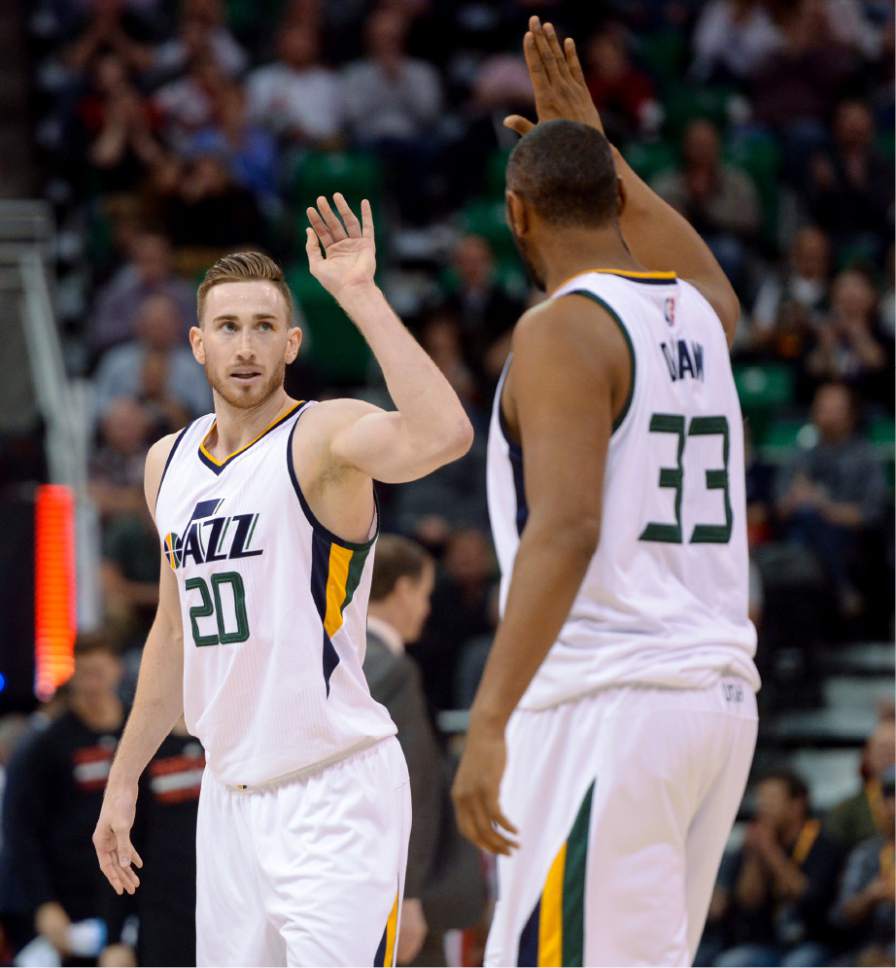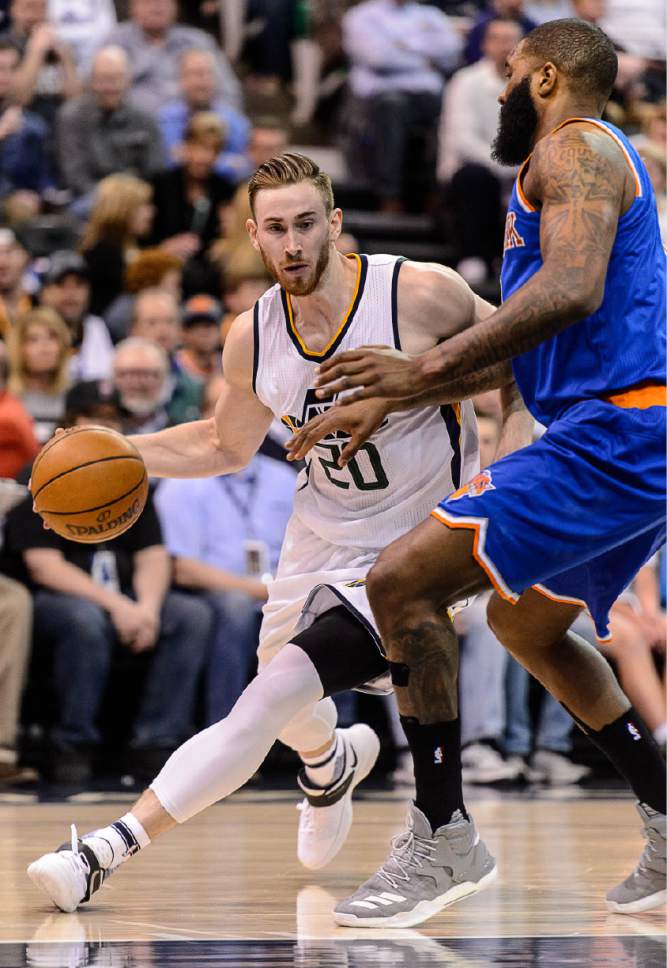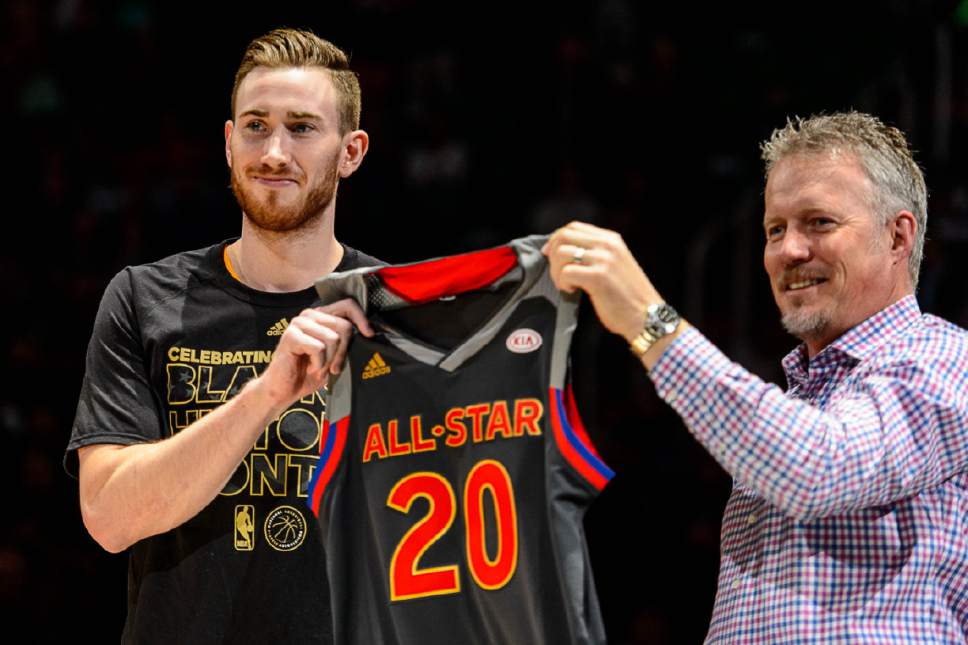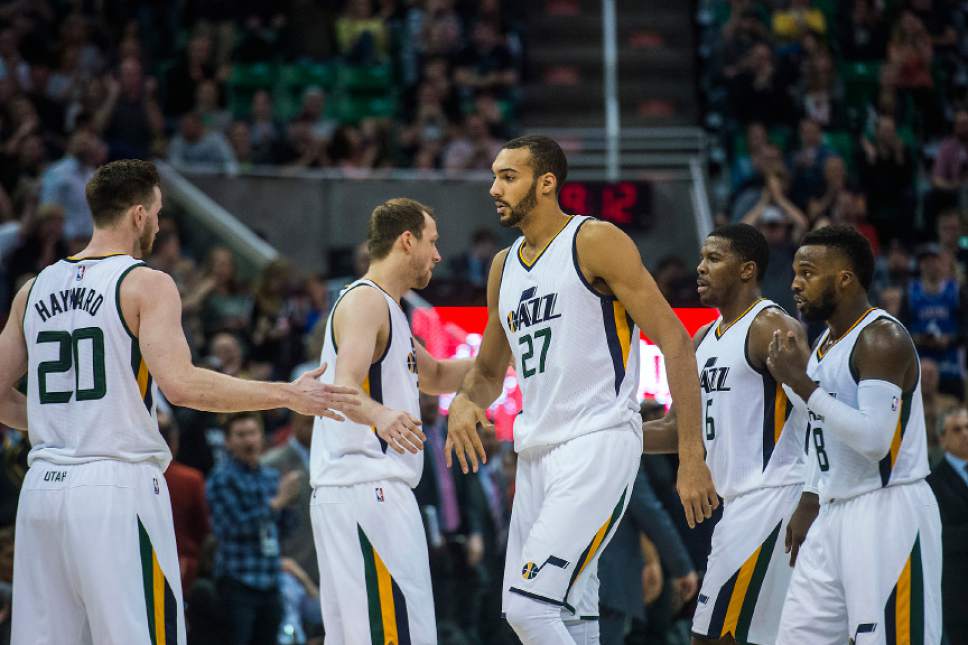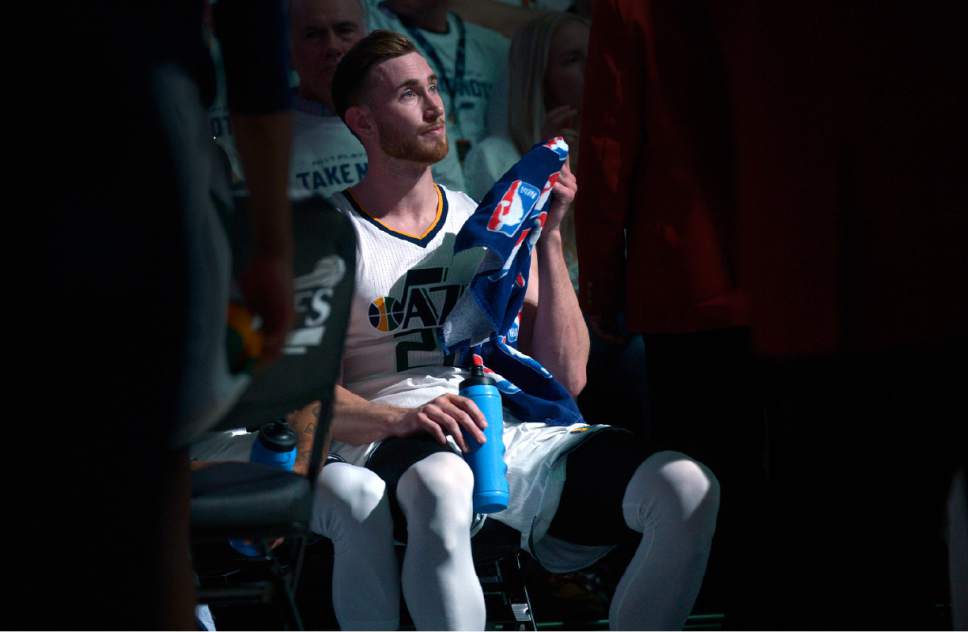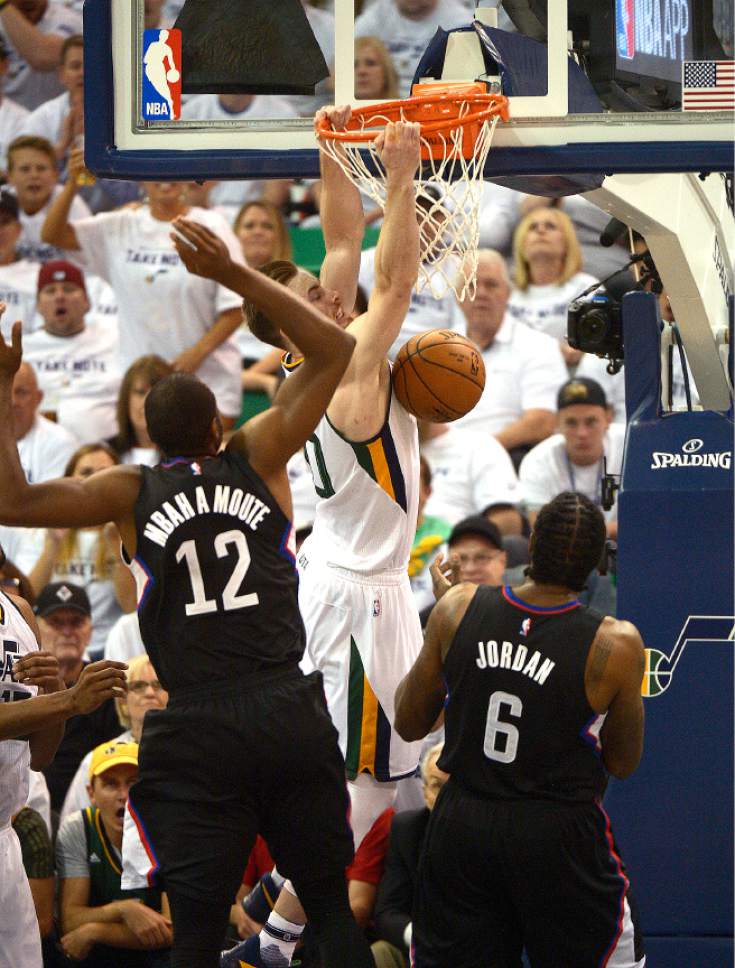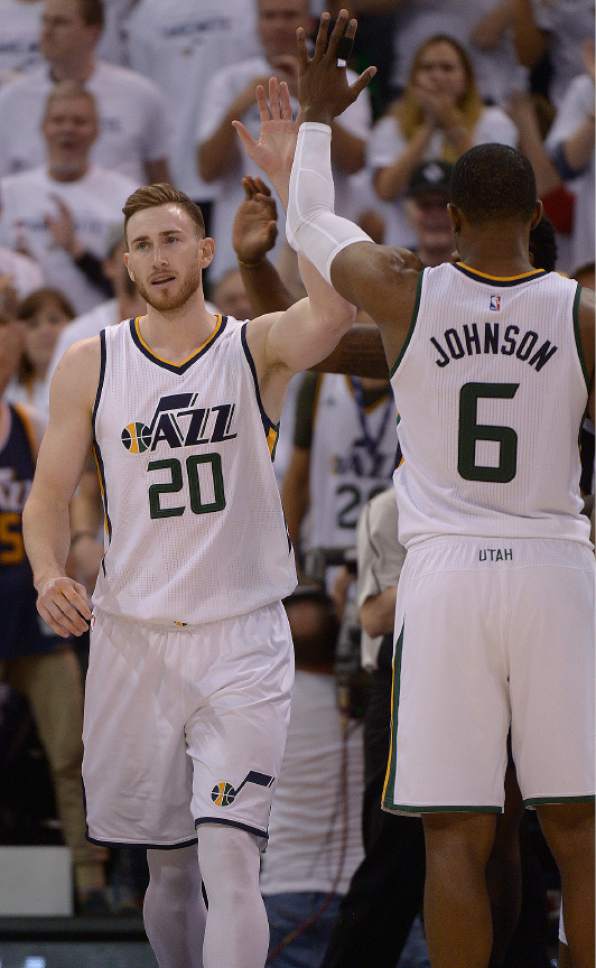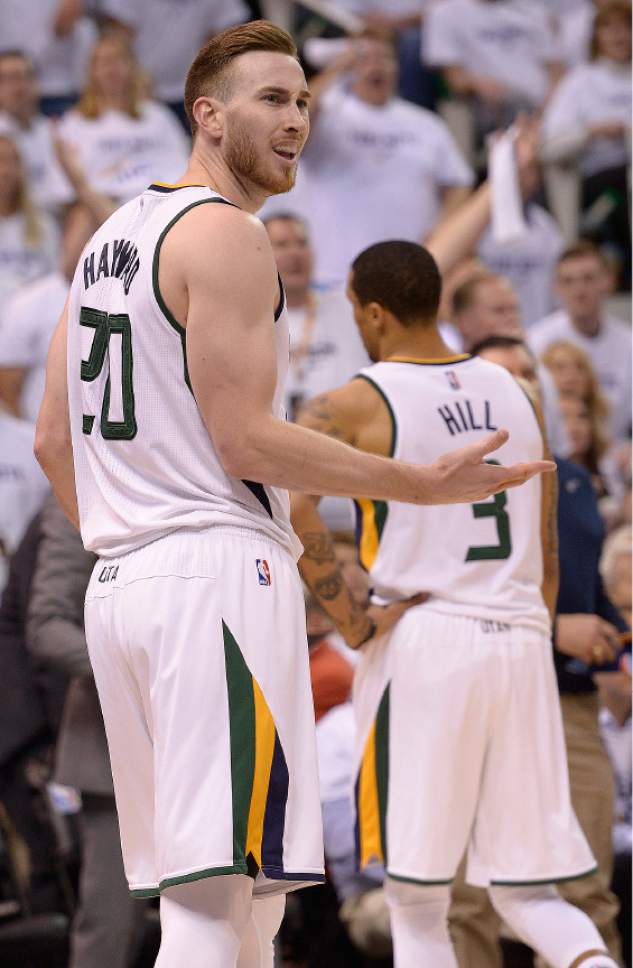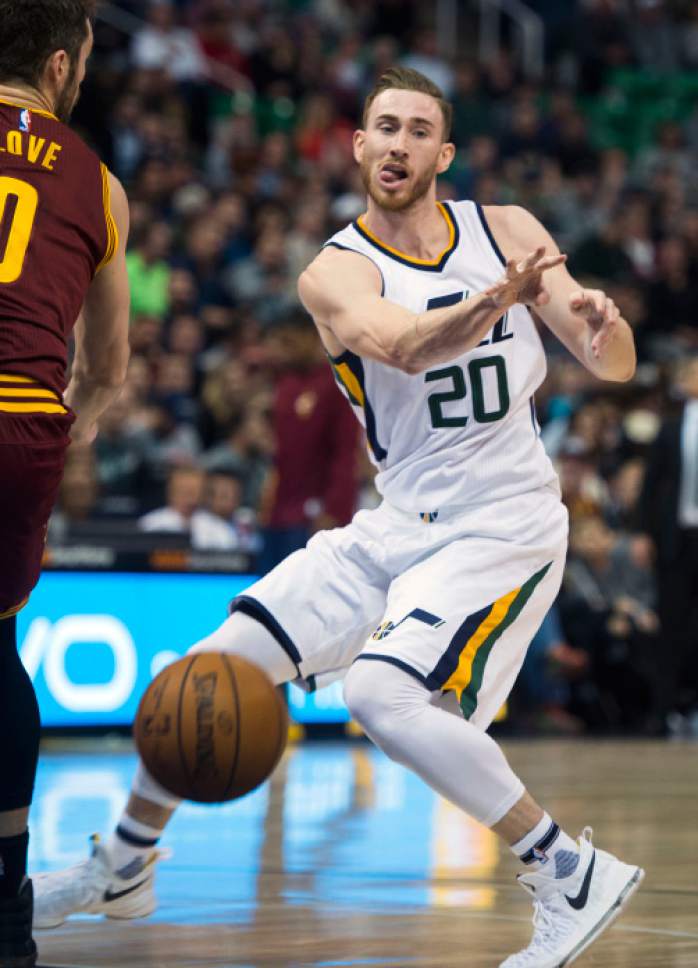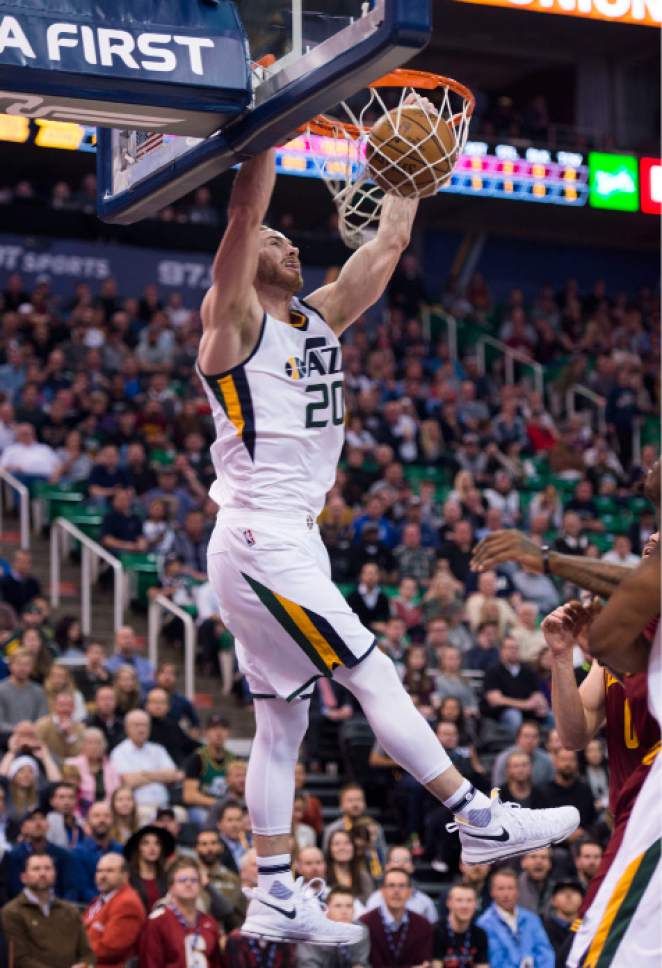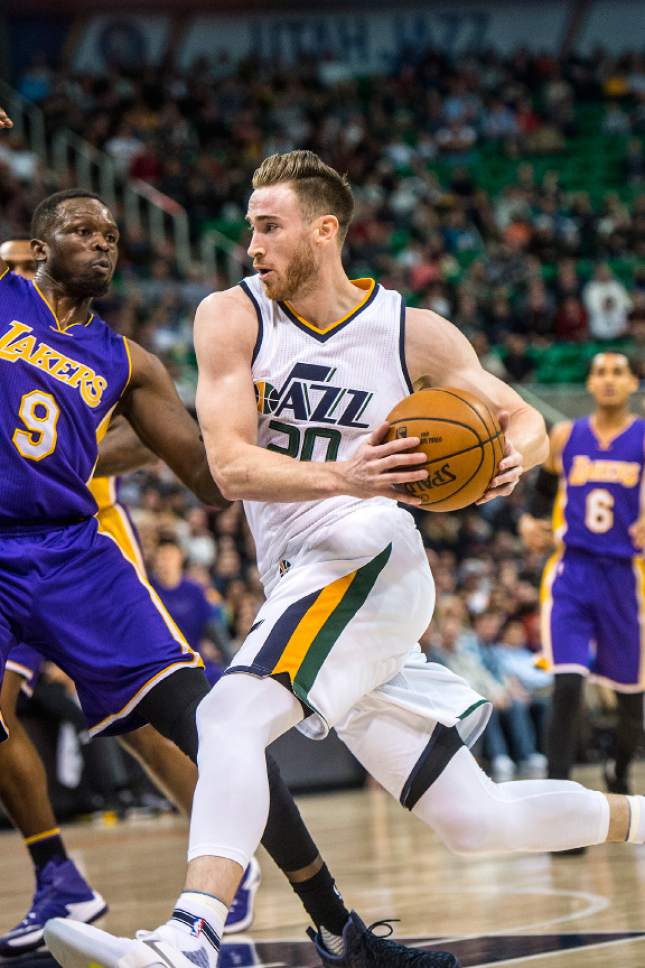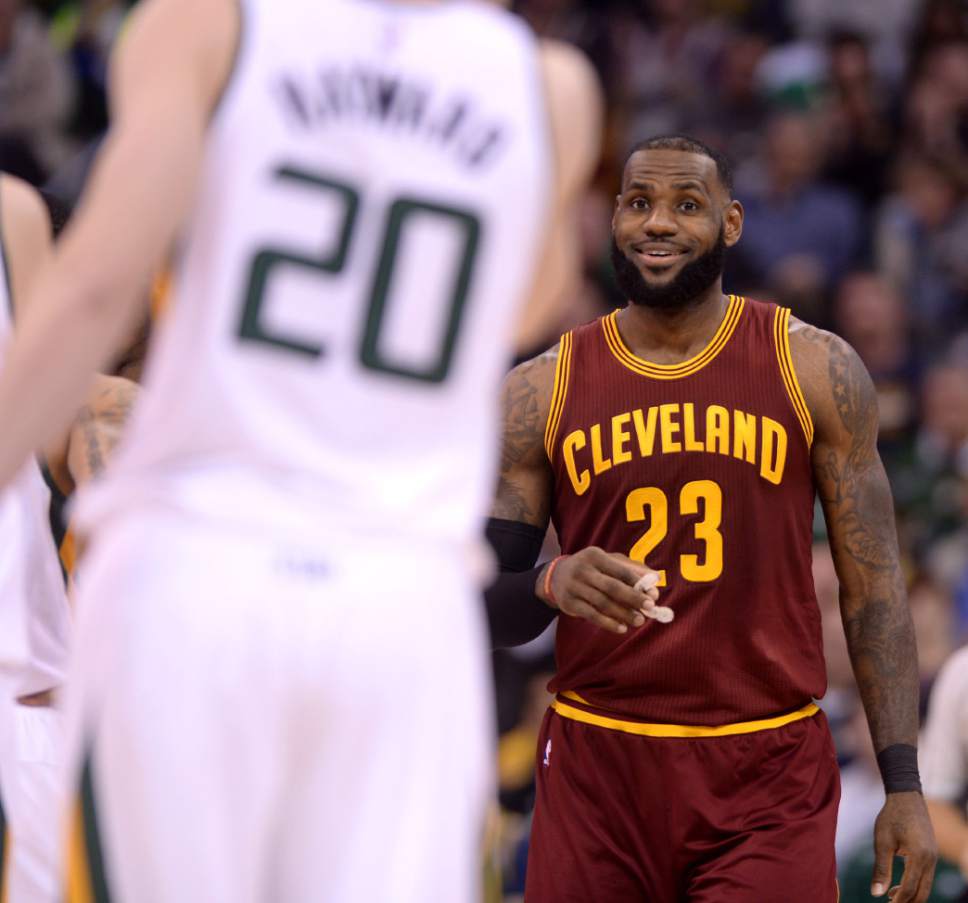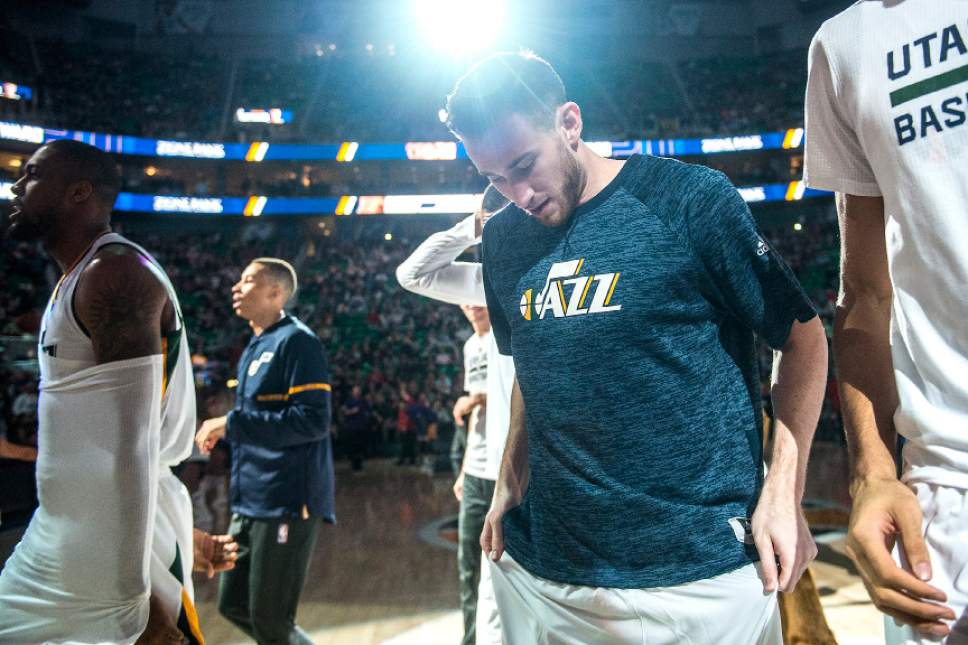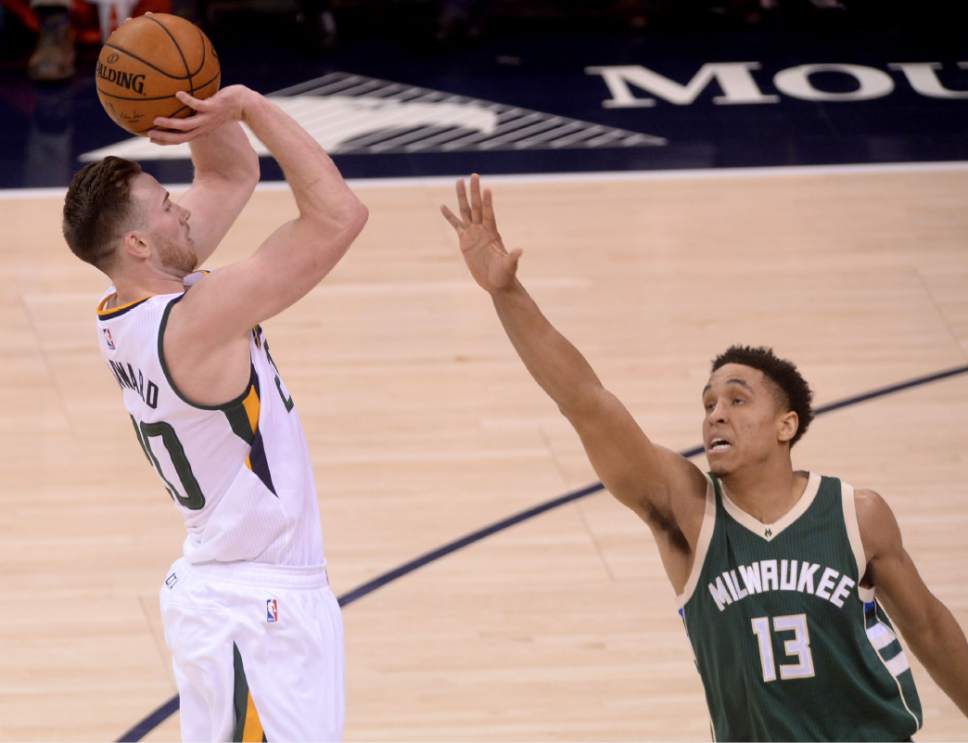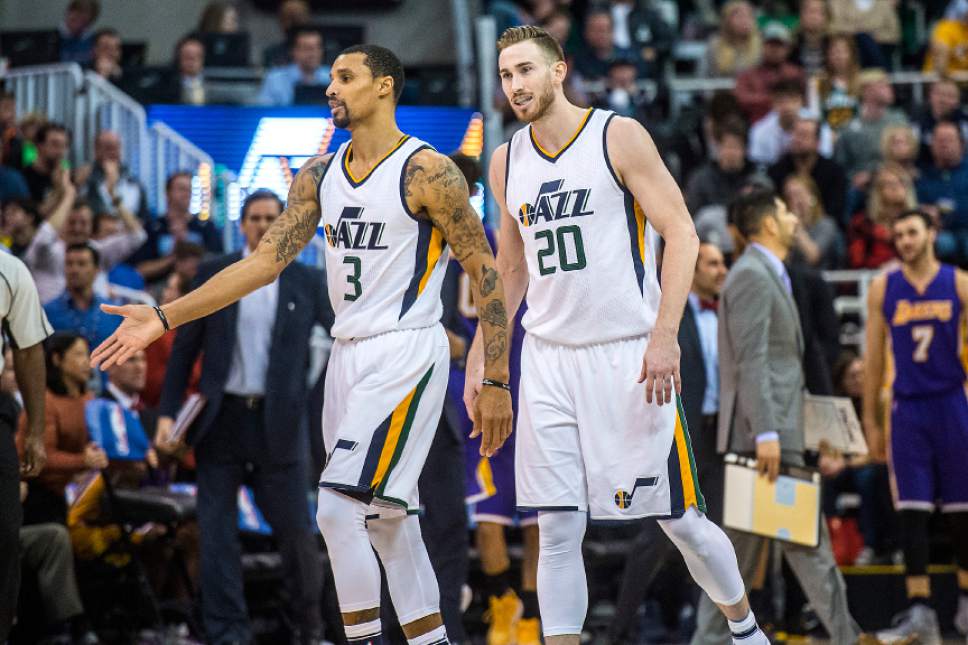This is an archived article that was published on sltrib.com in 2017, and information in the article may be outdated. It is provided only for personal research purposes and may not be reprinted.
The next day, the Jazz's old No. 20 appeared at the Huntsman Center during the Utah Summer League, greeting fans and remembering his good times in Salt Lake City.
Bobby Hansen's alumni visit Wednesday was a reminder that Gordon Hayward is not the first big-time playoff performer the Jazz have ever lost — Hansen also departing seven years after the team drafted him. As Hayward hopes to do in Boston, Hansen went on to win an NBA championship two years later in Chicago (Michael Jordan may have helped). And the Jazz recovered, right?
So maybe the loss of this century's No. 20 in free agency will hurt the Jazz more than the trade of Hansen, a mainstay of their 1980s teams. This bounce-back process will take awhile for everybody involved. Asked if he had recovered emotionally, Jazz general manager Dennis Lindsey smiled and said, "You know the real answer to that question. I'll come up here and put a brave face on it, but yeah ..."
In a statement, Jazz coach Quin Snyder said, "To further lament Gordon's departure does not honor the commitment we have to our current players." If you know Snyder, you know he actually speaks that way, befitting his Duke law degree. And he's right. The Jazz's only choice is to move on with the guys they have — and others they might add.
A defender? "We'll find someone hungry," Lindsey said.
A scorer? While praising point guard Ricky Rubio, Lindsey said, "We have to find him some more shooters."
As of Wednesday, though, the Jazz found themselves beyond Plan B. "Timing has been problematic," Lindsey said, the only time during a 15-minute interview session when he came close to criticizing Hayward's process, with the four-day ordeal having taken other potential targets off the market.
Lindsey spoke of taking a five-hour flight Tuesday with Snyder. They reportedly were pursuing Washington's Otto Porter, a restricted free agent who then signed an offer sheet with Brooklyn.
The Jazz will find somebody to take some of the money they would have paid Hayward. Rudy Gay, Tyreke Evans, James Johnson and Tim Hardaway Jr. are in the picture. They're flawed, but they're available, which is a valuable trait at this stage.
Or imagine the Jazz landing one of the players the Celtics are having to move in the interest of accommodating Hayward's salary. Center Kelly Olynyk, suddenly a free agent with several teams interested, would thrive as a shooter in the tradition of Mehmet Okur. Jae Crowder could come via a sign-and-trade with Boston, in the Hayward transaction. Crowder would fit well in Snyder's system, especially as a defender.
Hayward is gone, and the reaction to his move has become a phenomenon of its own, right down to Rudy Gobert's colorful video clip about loyalty.
By staying, Hayward would have energized the Jazz fan base. Yet his departure may have done even more to unify and mobilize a group that really wants the Jazz to prove something to him and the rest of the NBA. They're discouraged, they're angry, they're feeling rejected — and they're seemingly more bonded than ever, thanks to Hayward's perceived betrayal of them.
The Jazz players likely feel the same way. "The one thing our character always showed is they responded to challenges during the season … I would imagine they'll have a great response, with their work," Lindsey said.
Personally, I'm hoping Hayward succeeds in Boston, just not to the level of winning a championship that would validate his move. Yet I understand the bitterness of Jazz fans who are fully committed to cheering against him and the Celtics — starting Thursday night.
Twitter: @tribkurt


